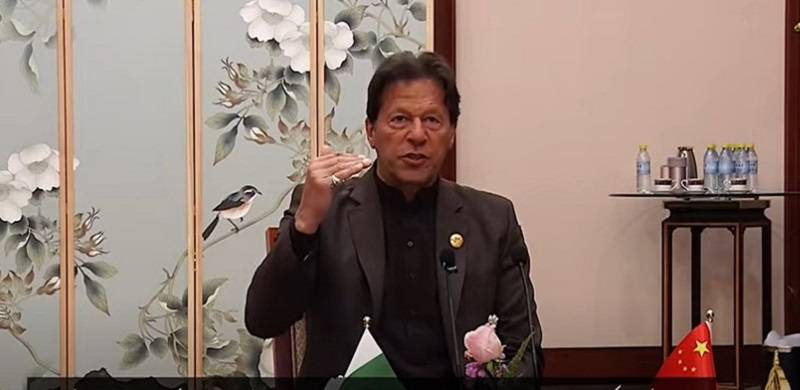
Prime Minister Imran Khan has said that the West is misrepresenting the treatment of Uighur Muslims in Xinjang, China, denying claims from the international press that China is committing acts of genocide.
In an interview with Director of the Advisory Committee of China Institute of Fudan University Dr Eric Li on Thursday, the prime minister said that Pakistan's ambassador to China had visited Xinjiang and reported that the situation was not how it was being portrayed in the western media.
Instead, the ambassador had reported that, "the emphasis on development in the region is unprecedented." PM Imran acknowledged that there was a 'security issue' there due to terrorist attacks, but asserted that 'genocide' or repression 'does not exist against Uighurs.'
The premier went on to highlight Pakistan's historic partnership with China, and stressed that the world did not want another Cold War, suggesting that Pakistan could bridge animosity between China and the US, as it had in the 1970s. He said Pakistan had suffered badly in the 'war on terror' and did not want to partake in any rival blocks.
He extolled the potential benefits of the China-Pakistan Economic Corridor (CPEC) and said that western concerns about the partnership made 'no sense.'
Shifting to Afghanistan, the prime minister rebuked the United States as he said that, "anyone who understood the history of Afghanistan would never have done what the Americans did," adding that he himself had said that the Americans would not succeed militarily from 'day one.'
“[The Americans] were never clear on what they were trying to achieve in Afghanistan. Was it nation-building; was it democracy; was it liberating the Afghan women? They had no clear aims,” the prime minister said.
The prime minister said that while the United States had been a superpower in the past, there is "no such thing as any one nation staying on top forever."
In an interview with Director of the Advisory Committee of China Institute of Fudan University Dr Eric Li on Thursday, the prime minister said that Pakistan's ambassador to China had visited Xinjiang and reported that the situation was not how it was being portrayed in the western media.
Instead, the ambassador had reported that, "the emphasis on development in the region is unprecedented." PM Imran acknowledged that there was a 'security issue' there due to terrorist attacks, but asserted that 'genocide' or repression 'does not exist against Uighurs.'
The premier went on to highlight Pakistan's historic partnership with China, and stressed that the world did not want another Cold War, suggesting that Pakistan could bridge animosity between China and the US, as it had in the 1970s. He said Pakistan had suffered badly in the 'war on terror' and did not want to partake in any rival blocks.
He extolled the potential benefits of the China-Pakistan Economic Corridor (CPEC) and said that western concerns about the partnership made 'no sense.'
Shifting to Afghanistan, the prime minister rebuked the United States as he said that, "anyone who understood the history of Afghanistan would never have done what the Americans did," adding that he himself had said that the Americans would not succeed militarily from 'day one.'
“[The Americans] were never clear on what they were trying to achieve in Afghanistan. Was it nation-building; was it democracy; was it liberating the Afghan women? They had no clear aims,” the prime minister said.
The prime minister said that while the United States had been a superpower in the past, there is "no such thing as any one nation staying on top forever."

